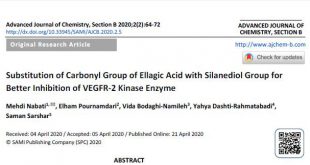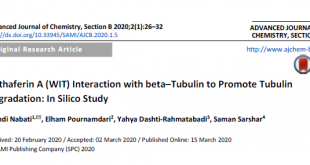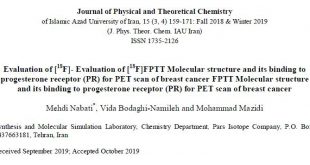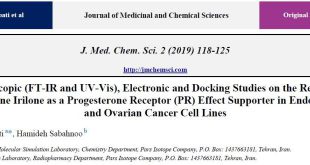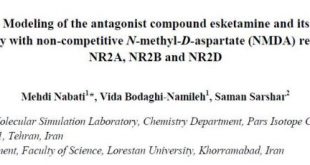Zotepine as an atypical antipsychotic antagonist
Schizophrenia is a chronic, critical condition characterized by collective psychotic signs and symptoms, exhibited as alterations in patient’s thoughts, perception and behavioral attributes. Schizophrenia is mostly accompanied by symptoms that are generally categorized into two major groups: 1: Positive symptoms including hallucinations (auditory, visual, olfactory, gustatory and tactile), delusions, trouble concentrating and movement disorders and 2: negative symptoms such as lack of pleasure blunting of affect, apathy, loss of motivation and anhedonia. The previous studies demonstrated the prevalence of this disorder to be relatively low with a social and clinical recovery rate of only 13.5%. Furthermore, life expectancy in schizophrenic patients is about 15–۲۰ years shorter than a normal person and mortality rate is 2–۱۲ times higher than general population. In addition, schizophrenia is associated with several comorbidities which could result in higher rates of mortality in patients. More observed are chronic diseases including type II diabetes, coronary heart disease, some cancers and neurological conditions such as major depressive disorder, dementia and obsessive compulsive disorder. As a result, schizophrenia is considered a major financial burden on society, health systems and families. The mechanism contributing to cognitive deficits witnessed in schizophrenia is multifactorial and could include environmental exposures, genetics and several medications. Schizophrenia is prominently associated with alterations of brain dynamics and the dopamine’s role in etiology of this condition has been specifically evaluated. Dopamine is an important endogenous chemical belonging to catecholamine family and acts as a neurotransmitter in neuronal tissues. Dopamine is responsible for many regulatory processes relating to CNS function and any disruption in its activity could result in various disorders in CNS namely, schizophrenia. Dopamine exerts its effects by binding to D1 or D2 receptors which belong to G protein-coupled receptor (GPCR) family. These receptors are of great importance in dopamine homeostasis and in diseases associated with dopamine dysregulation. Therefore, the utilization of antipsychotics that target and antagonize D2 receptors in order to manage schizophrenia has been extensively studied. Zotepine is an atypical antipsychotic and D2 receptor antagonist indicated in treatment of schizophrenia. Zotepine is shown to induce dopaminergic neurotransmission at low doses while at higher doses it possesses antagonistic effects on dopamine receptors. Zotepine is determined to ameliorate both negative and positive symptoms of schizophrenia and has a low tendency to induce extrapyramidal side effects.
A survey through previous studies has demonstrated that while the efficacy and safety of Zotepine as an atypical antipsychotic and D2 receptor antagonist in treatment of schizophrenia has been thoroughly evaluated, the exact structural and molecular interactions between Zotepine and D2 receptor is yet to be analyzed. In 2018, Dr. Mehdi Nabati and Dr. Vida Bodaghi focused on the formation of dug-receptor complex and the molecular mechanism contributing to their interactions. For this purpose, they used the molecular docking methods and computational chemistry. They showed Zotepine has low reactivity against the biomolecules. Also, the Zotepine-D2R complex formation is mainly carried out by the residues Phe 437, His 442, Ser 433, Phe 433 and Leu 441 using steric interactions.
For more information about zotepine as an atypical antipsychotic antagonist, please read the following article:
 Iranian Chemist شیمیدان ایرانی
Iranian Chemist شیمیدان ایرانی
